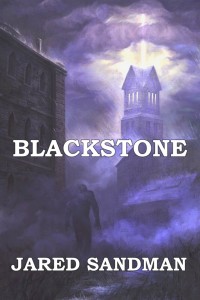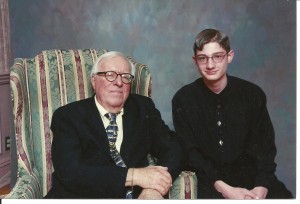Here’s a list of the top ten writing manuals I’ve come across. Many of them are horror-centric, so if you’re a not a genre writer you likely won’t get as much out of them. I’m including books on screenwriting as well, which I’ve found equally useful. This list is in no particular order, by the way.
One book I have not read is Richard Laymon’s Writer’s Tale, about which I’ve only heard positive things. Perhaps one day an affordable version will be released, unlike the rare copies that sell on the secondhand market for several hundred bucks . . .
10) Lessons from a Lifetime of Writing, by David Morrell
As the creator of John Rambo, Morrell knows action writing. I had him sign my copy at Necon some years past, which I read cover to cover at the Columbus airport. This book was recently re-released as The Successful Novelist, so don’t be confused that he’s written two writing books. He hasn’t.
9) The Complete Idiot’s Guide to Writing A Novel, by Thomas F. Monteleone
This is probably the best entrance guide on the market. It’s the book I’ll reread before embarking on any new manuscript of my own. The advice is basic, the author’s anecdotes amusing. I must’ve read it four or five times by now
8) How to Write Tales of Horror, Fantasy and Science Fiction, edited by J.N. Williamson
This was originally published in the ‘80s, so some of the information is dated. Most of the advice, however, is still as relevant today as it was a generation ago. Stand out essays include, “How to Write Horribly for Fun and Profit” by Robert Bloch and R.C. Matheson’s “They Laughed When I Howled at the Moon.”
7) Writing Horror, edited by Mort Castle
This was a writing manual put out by the Horror Writers Association, updated a few years back. I have a copy of the original, so I don’t know how it differs from the revised version. Favorite essays include Jack Ketchum’s “Splat Goes the Hero” and “Dr. Frankenstein’s Secrets of Style” by Norman Partridge.
6) Writers’ Workshop of Horror, edited by Michael Knost
This is a more recent release, and the third book of essays specifically related to horror writing. Pay special attention to Tom Piccirilli’s “Exploring Personal Themes” and Ramsey Campbell’s “The Height of Horror.”
5) Zen in the Art of Writing, by Ray Bradbury
Many of the essays in this collection are reprints from introductions of Bradbury’s other novels, showcasing how each book came to be written. Two in particular — “How to Keep and Feed a Muse” and “The Joy of Writing” — are worth the price of admission. Great book if you’re looking for motivation to write.
4) On Writing, by Stephen King
Ironically, the weakest part of this book is the middle section that’s actually on writing. King presents pretty standard advice, the same you’ll get from any of these other books. If you’ve never read a writing manual, it’s a good place to start. The first segment (about King’s writing journey up to the publication of his first novel) and the third (about the car accident that nearly killed him and the painful rehabilitation that followed) were far more engaging, in my opinion.
3) Writing Movies for Fun and Profit, by Thomas Lennon and Robert Ben Garant
Another recent addition to the list. This book is entertaining, laugh-out-loud funny and depressing as hell — all at the same time. Two comedy writers/actors skewer Hollywood while explaining how to write screenplays that pander to mediocrity (and that will make a billion dollars at the box office).
2) The Complete Book of Scriptwriting, by J. Michael Straczynski
A more serious take on screenwriting. The author updates it every ten years or so, and my copy isn’t the most up to date. The great thing about this book is that it touches all the bases, not just features and teleplays. Animation, theatrical plays and radio programs are also covered.
1) The Elements of Style, edited by Strunk and White
This slim volume is still the gold standard by which all other writing manuals are compared. If you only buy one book on this list, make it this one. It’s dry in places, and the writers can be a bit professorial at times, but the advice is spot on. Follow the rules in this book and you will be a better writer.
Honorable Mentions
Dark Dreamers, edited by Stanley Wiater
This is a book of interviews conducted with the biggest names in the genre. It doesn’t explain how to write, but it illuminates the creative processes of the writers involved. Mix and match their routines or quirks to find out what works for you.
The Writer’s Tale, by Russell T. Davies
This 700-page book encompasses voluminous e-mail correspondence between then-showrunner of “Doctor Who” and a journalist. A fantastic, unfolding account of his breaking the stories and scripts throughout Series 4. Plus, if you’re a Doctor Who fan (which I am), then it’s doubly entertaining to read about the backstage shenanigans.
Word Work, by Bruce Holland Rogers
This is the only book I know that deals with the writer rather than the writing. It covers such sticking points as what it’s like to live with a writer, and how to coax the most creativity out of yourself while being optimally productive.

















